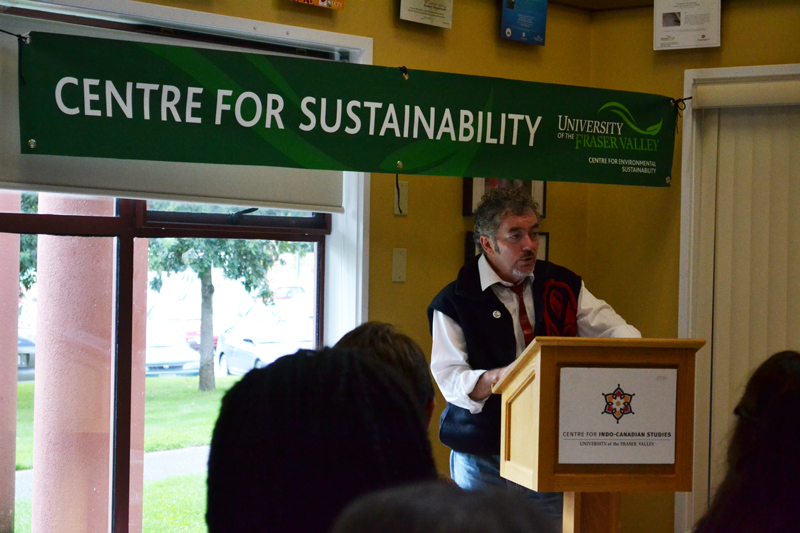Print Edition: October 2, 2013

Universities are beginning to feel the pressure of anti-environmentalist leanings with respect to research, and professors are speaking up against it.
English professor Trevor Carolan kicked off this year’s greenSPEAK series on September 4 in U-House with his lecture: “Talking Dirty, Talking Green: Confronting the New Academic Anti-Environmentalism.”
The greenSPEAK series is designed to bring speakers and listeners together on issues regarding sustainable living and all things green.
Carolan began by lecturing to a small group of students and faculty about a topic he calls “anti-academic environmentalism,” or the argument that academia is shifting away from the inclusion of environmental critics actively contributing to environmental sustainability.
He called upon respected environmental writers such as Gary Snyder, Wade Davis, and Frank Stewart to give listeners a better understanding of the intellectual theory grounding Carolan’s own observations.
Carolan also addressed the obstacles that now face environmental researchers, due to the power corporate interests hold in the world of academic study. Carolan articulately expressed his view on this corporate academic relationship.
“For researchers … when big economic and status quo political interests are able to exert impact on who gets university research support, academic conference resources, and corporate encouragement,” he explained, “they control the prominent voices in the conversation.”
While Carolan did acknowledge that corporate funding can positively impact an institution’s growth and research abilities, he still expressed concern that with increased financial control, corporations will monopolize environmental dialogues with their own interests.
Carolan also noted the media’s role in perpetuating anti-environmental beliefs. Explaining how corporations now use mass canvassing of media forums to push their ideas, Carolan revealed how this form of media works.
“It’s a newer, US attack-dog style campaign,” he explained. “Paid pro-fossil fuel lobby advocates flood the major newspaper editorial pages with a never-ending firewall of media coverage that effectively proclaims the good things ahead if people will support big energy.”
The fear is that this tactic, over time, will sway the general public’s beliefs about environmental issues, however valid the corporation’s claims may be.
As a unique addition to the event, the audience was given a chance to speak. The dialogue touched upon many different issues, but English professor Hilary Turner left a lasting impression on the crowd.
“We have been encouraged to make a complete separation between ourselves as human beings and ourselves as workers within a corporation. I feel a bit stifled in the classroom,” she said. “I feel what I’m valued for at the [academic] institution is not my values or my beliefs, but rather my productivity – my contribution to the bottom line.”


